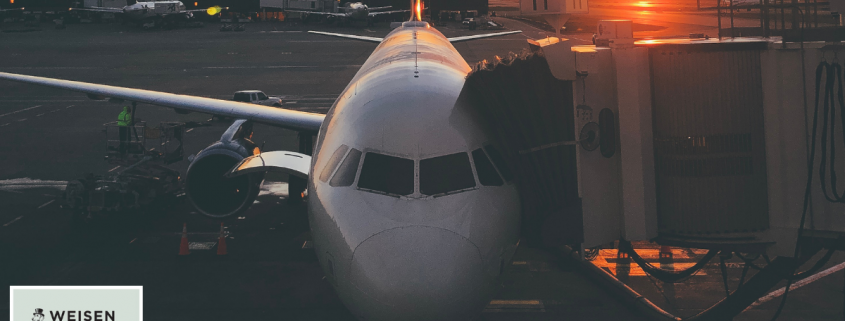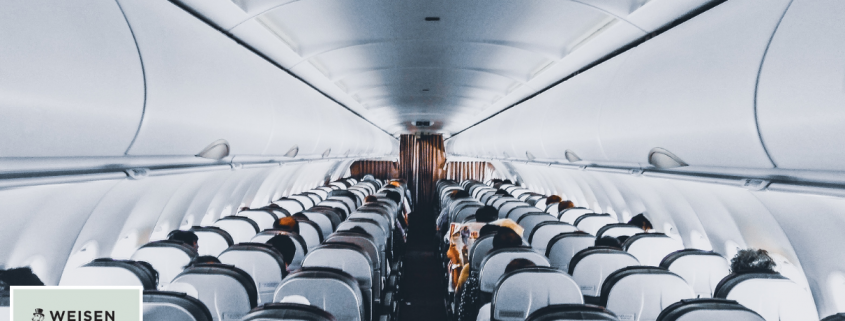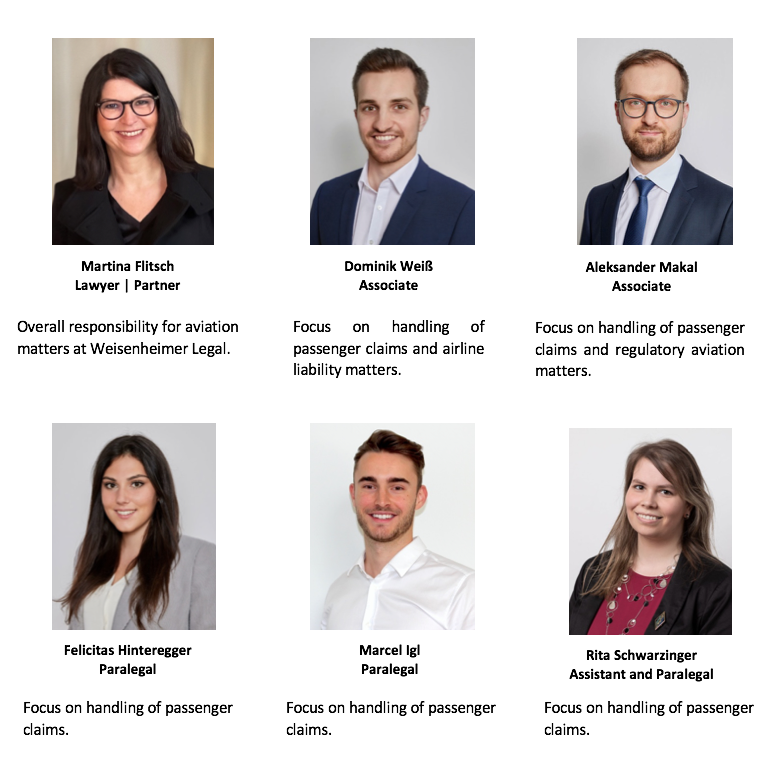Gibt es eine Zukunft für No-Show-Klauseln in Österreich?
In den letzten Jahren haben die Verbraucherschutzbehörden in der gesamten Europäischen Union fortlaufende Bemühungen unternommen, um die Verwendung so genannter No-Show-Klauseln zu verhindern, die von Fluggesellschaften häufig in ihren Allgemeinen Beförderungsbedingungen verwendet werden. In Österreich führte dies zu mehreren Gerichtsverfahren, in denen Urteile ergangen sind, die die Verwendung von No-Show-Klauseln wirksam einschränken. Dies wiederum veranlasste viele Fluggesellschaften, ihre Klauseln anzupassen, um der Rechtsprechung zu entsprechen. Dieser Artikel soll einen kurzen Überblick über die Thematik und die Zukunft von No-Show-Klauseln in Österreich vor dem Hintergrund der jüngsten Entscheidung des Obersten Gerichtshofes in der Rechtssache 4 Ob 63/21z geben.
Was ist eine No-Show Klausel?
Die Fluggesellschaften verwenden komplexe Preissysteme, um den einzelnen Fluggästen bestimmte Flugpreise zuzuweisen. Der Ticketpreis, der einem Fluggast in Rechnung gestellt wird, hängt unter anderem von der gewählten Reiseroute ab. Denn einerseits sind die Fluggäste bereit, für Direktflüge höhere Preise zu zahlen, andererseits sind die Preise in der Regel vom jeweiligen Abflugort abhängig. So wird der Ticketpreis für einen Flug, der z.B. von Warschau nach New York mit Zwischenstopp in Wien gebucht wird, vermutlich zu einem niedrigeren Preis angeboten als ein Direktflug von Wien nach New York. Ein weiteres Beispiel sind Rundflüge (z.B. mit den Flugstrecken Wien – New York – Wien), die oft günstiger angeboten werden als One-Way-Tickets.
Die Fluggesellschaften haben jedoch festgestellt, dass einige Fluggäste das Preissystem zu ihren Vorteilen nutzen, indem sie z. B. einen Flug von Warschau nach New York mit Zwischenlandung in Wien statt eines (teureren) Direktflugs von Wien nach New York buchen, obwohl sie in Wien wohnen und nur von Wien nach New York befördert werden wollen. Andere Passagiere buchen einen Hin- und Rückflug und „verpassen“ absichtlich den zweiten Flugabschnitt. Einige Reisebüros haben sich sogar darauf spezialisiert, ihren Kunden durch Umgehung des Preissystems möglichst günstige Flugpreise zu verschaffen.
Als Reaktion darauf haben die Fluggesellschaften so genannte No-Show-Klauseln in ihre allgemeinen Beförderungsbedingungen aufgenommen, die vorsehen, dass Fluggästen die Beförderung verweigert wird oder sie einen angepassten Tarif zahlen müssen, wenn sie nicht alle Teilstrecken nutzen (d. h. in unserem Beispiel: wenn der Fluggast den Flug von Warschau nach Wien nicht antritt oder seine zweite Teilstrecke von New York nach Wien verpasst).
Wie werden No-Show-Klauseln von Verbraucherschutzorganisationen angefochten?
Da No-Show-Klauseln in der Regel in den allgemeinen Beförderungsbedingungen einer Fluggesellschaft enthalten sind, haben verschiedene Organisationen das Recht, sie gemäß den österreichischen Verbraucherschutzbestimmungen anzufechten. Insbesondere der Verein für Konsumenteninformation (VKI) und die Bundesarbeitskammer sind in dieser Hinsicht sehr aktiv.
Diese beiden Organisationen überprüfen regelmäßig die Allgemeinen Geschäftsbedingungen einiger Unternehmen, darunter auch die Allgemeinen Beförderungsbedingungen von Fluggesellschaften, die Flüge von oder nach Österreich durchführen, auf Klauseln, die sie für rechtswidrig erachten, insbesondere mit dem Argument, dass solche Klauseln für die Verbraucher überraschend und nachteilig oder grob nachteilig sind. Wird eine Klausel als rechtswidrig eingestuft, erhält die Fluggesellschaft in der Regel ein Schreiben der Verbraucherschutzorganisation oder ihres Anwalts, in dem die betreffende Fluggesellschaft aufgefordert wird, die Verwendung der „rechtswidrigen“ Klausel unverzüglich zu unterlassen, verbunden mit einer durch eine Vertragsstrafe abgesicherten Unterlassungserklärung.
Ein Aspekt, der von unseren Mandanten häufig kritisiert wird, ist der, dass die Verbraucherschutzbehörden in der Regel weder bereit sind, über die Rechtmäßigkeit der jeweiligen Klausel zu diskutieren, noch gemeinsam eine Lösung zu finden, die sowohl die Positionen der Verbraucher als auch die der Fluggesellschaften berücksichtigt. Vielmehr werden die Fluggesellschaften lediglich vor die Wahl gestellt, entweder die Unterlassungserklärung innerhalb von (in der Regel) 14 Tagen zu unterzeichnen oder sich mit einem Gerichtsverfahren zu konfrontieren.
Wie werden No-Show-Klauseln von österreichischen Gerichten beurteilt?
Österreichische Gerichte halten No-Show-Klauseln vor allem dann für nichtig, wenn sie entweder überraschend und für den Verbraucher nachteilig sind oder grob nachteilig sind. Während der „überraschende“ Charakter einer No-Show-Klausel durch bestimmte Maßnahmen im Buchungsprozess vermieden werden kann, um sicherzustellen, dass die Fluggäste ordnungsgemäß informiert werden, ist es für Fluggesellschaften eher schwierig, No-Show-Klauseln zu formulieren, die nicht als grob nachteilig angesehen werden und dennoch wirksam sind.
Der Oberste Gerichtshof beschäftigte sich erstmals 2012 mit No-Show-Klauseln (4 Ob 164/12i, ein Fall, an dem unsere Partnerin Martina Flitsch direkt beteiligt war). Der OGH erkannte zwar ausdrücklich das berechtigte Interesse der Fluggesellschaft an der Durchsetzung und dem Schutz ihres Preissystems an, sah aber die von der Fluggesellschaft verwendete No-Show-Klausel als zu weitgehend und damit als gröblich benachteiligend an. Diese Auffassung wurde in mehreren anderen Entscheidungen des Obersten Gerichtshofs übernommen und weiterentwickelt, zuletzt in 4 Ob 63/21z aus dem Jahr 2021.
Als Reaktion darauf haben mehrere Fluggesellschaften, die Flüge von und nach Österreich anbieten, ihre Beförderungsbedingungen angepasst, um den von der österreichischen Rechtsprechung aufgestellten Kriterien zu entsprechen. Die Konsequenz der Nichtnutzung aller Teilstrecken ist daher heute in der Regel eine Neuberechnung des Flugpreises oder ein zu zahlender Pauschalbetrag. Darüber hinaus wird in vielen No-Show-Klauseln inzwischen ausdrücklich darauf hingewiesen, dass sie in Fällen höherer Gewalt, bei Krankheit oder generell dann nicht gelten, wenn der Fluggast die Gründe für die Nichtnutzung aller Teilstrecken nicht zu vertreten hat.
Wie sieht die Zukunft von No-Show-Klauseln in Österreich aus?
Die jüngste Entscheidung des Obersten Gerichtshofs (4 Ob 63/21z) befasste sich mit einer No-Show-Klausel, die offensichtlich so gestaltet war, dass sie der österreichischen Gerichtspraxis entsprach. Trotz sorgfältiger Formulierung wurde die Klausel dennoch letztlich als gröblich benachteiligend für den Verbraucher und damit als unwirksam angesehen. Der Oberste Gerichtshof betonte die Notwendigkeit, zwischen Fluggästen, die das Preissystem bewusst umgehen, und solchen, die aus anderen Gründen nicht alle Flugstrecken nutzen, zu unterscheiden.
In der Praxis ist absehbar, dass es für Fluggesellschaften eine besondere Herausforderung sein wird, im Einzelfall erfolgreich festzustellen, ob ein Fluggast das Preissystem umgeht, insbesondere wenn diese Entscheidung sehr schnell getroffen werden muss, bevor die Beförderung verweigert wird. Insbesondere im Hinblick auf die Verordnung (EU) 261/2004 und die auf die Vertretung von Fluggästen in Fällen von Nichtbeförderung spezialisierten Organisationen ist das Risiko von Klagen und Gerichtsverfahren, in denen die Fluggesellschaften nachweisen müssen, dass die Nichtbeförderung gerechtfertigt war, recht hoch.
Trotz der vielen Herausforderungen, mit denen Fluggesellschaften in Österreich konfrontiert sind, wenn es sich um No-Show-Klauseln handelt, ist es unseres Erachtens nach eher unwahrscheinlich, dass Fluggesellschaften auf deren Verwendung verzichten werden. Wie bereits erläutert, sind No-Show-Klauseln ein wesentlicher Bestandteil, um das Funktionieren des Preissystems einer Fluggesellschaft sicherzustellen, welches ein wesentlicher Bestandteil des Geschäftsmodells einer Fluggesellschaft ist.
Die Fluggesellschaften müssen daher wachsam bleiben und aktuelle Entwicklungen wie neue Gerichtsentscheidungen im Blick behalten, um zu vermeiden, dass sie mit Verbraucherschutzbehörden konfrontiert werden oder sich in Gerichtsverfahren wiederfinden, die zwar einen erheblichen Arbeitsaufwand und hohe Anwaltskosten verursachen, aber nur geringe Erfolgsaussichten haben. In solchen Fällen ist es ratsam, einen zuverlässigen Rechtsberater hinzuzuziehen, der Erfahrung im Umgang mit Verbraucherschutzbehörden und der Bearbeitung von Fluggastansprüchen hat.
Für Fragen zu Passenger Claims in Österreich steht Ihnen unser erfahrenes Aviation Team gerne zur Verfügung.



